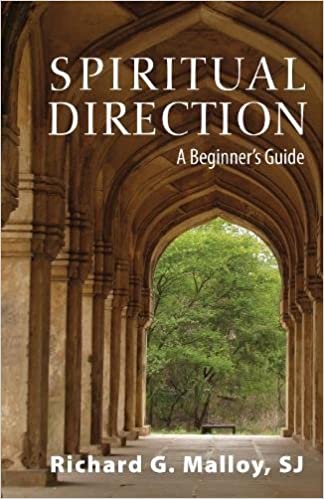|
Why does Seeds of Silence recommend spiritual accompaniment for those wanting to develop a discipline of silence?
Developing a practice of silence often feels quite liberating to people in the early weeks and months. But as your discipline deepens you may begin to feel unsure about what is going on. At times, you might wonder if anything is happening in your spiritual life at all as a result of your time in silence. We can even start to think that it's probably just a waste of time! Alternatively, you might notice that events or feelings from your past surface in the silence, and be unsure how to respond to these within your practice.
|
Today, many people prefer 'spiritual accompanist' and 'spiritual accompaniment' to the traditional terms 'spiritual direction' and 'spiritual director', as these convey more about the nature of this ongoing relationship. 'Soul friend' or 'spiritual companion' are other terms that are often used.
|
To inquire about spiritual accompaniment with Alison Woolley, the Director of Seeds of Silence, please get in touch using the button below. I'm based in the Scottish Borders but also offer on line accompaniment on Zoom.
|
A trained spiritual accompanist will meet with you regularly - from monthly, to a few times a year, as suits you. They don't 'direct' your spiritual path, but seek to offer you a space where you feel listened to and heard. They will support and help you to ponder your spiritual journey, and encourage you to explore how your relationships with God, with yourself, and with others are developing alongside your discipline of silence. Some spiritual accompanists have their own practice of silence and so will understand the different questions and experiences you might have around this. They will also be committed to praying for you in between your sessions.
|
|
People of faith, and sometimes people of none, seek this kind of regular support for a variety of reasons. Often a member of clergy, retreat leader, or a Christian friend recommends spiritual accompaniment as a useful space for reflection and support. You might be struggling with your prayer life, feeling that your faith has run out of steam, facing a period of change, loss or personal difficulties, wanting to explore your spirituality in a deeper way, or for the first time. Or you might simply want a space where you can feel safe enough to talk openly about your life and faith, and how these interact.
|
Spiritual accompaniment is not therapy or counselling. If your accompanist thinks that you need the more intensive kind of support that professionals in these fields can offer, they will suggest this to you. They may be able to help find an appropriate person to see, as well as continuing to work with you.
|
If you would like advice in finding a spiritual accompanist, each diocese within the Church of England, or other Anglican provinces, usually has someone who's responsible for helping people to find an appropriately trained and suitable spiritual accompanist to work with them.
The diocesan office for your local diocese should be able to put you in touch with this person. On line you can find diocesan office contact details for a diocese near you. |
As spiritual accompanists are trained for this role, and attend supervision for their work, many charge a fee for each session. Usually, this is negotiated with you to reflect what you feel you can afford, and their time commitment. Each session with a spiritual accompanist usually lasts about an hour but some accompanists do not boundary time with you in this way.
|
You can find further information about spiritual accompaniment on the website of the London Centre for Spiritual Direction. Click on their logo or the button for the LCSD web pages and more info on this subject. |
For Spiritual Accompaniers/Directors
|
Have you heard about the UK's recently formed National Forum for Spiritual Direction?
It's vision is:
|
To read its full vision, values and mission statement, and for more information on how this group is developing, please visit their website.
|
You can search the entire website here.
|
|






